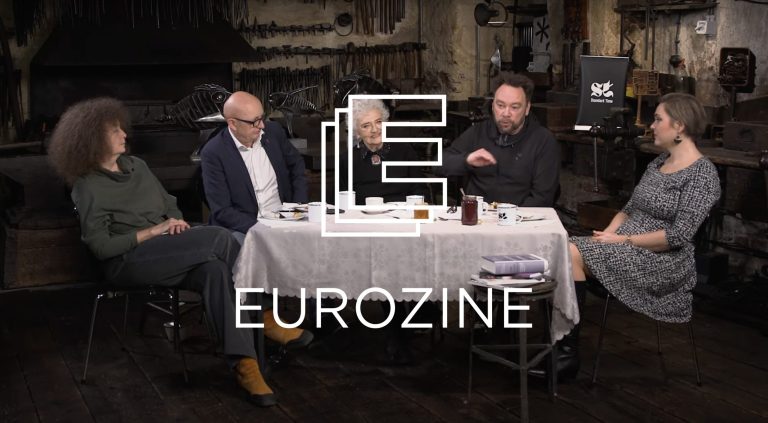In its twenty-fifth year as an online cultural magazine, Eurozine can boast an unusual longevity for an independent journalistic project of its kind. Founded as a group of small print periodicals across Europe, Eurozine has always been aware of how dangerous this particular sector of journalism is.
But 25 years not only testifies to longevity. Eurozine can also claim consistency. Just before the new millennium, the Internet served as a means of furthering the main goal of cultural magazines: expanding – if not overcoming – the frontiers of intellectual and critical dialogue in Europe. This remains Eurozen's goal today, despite – or because of – everything we now know about the filter bubble.
If you're interested in learning more about Eurozine's founding and founding principles, take a look at the latest episode of Eurozine's talk show Standard Time. In their conversation with Eurozine Editor-in-Chief Rika Kinga Papp, the network's founding members discussed the past, present and future of the European public sphere from their perspective as experienced editors.
There is one detail I would like to share here: In 2000, Austria was the subject of intense international scrutiny after the conservative People's Party entered into a coalition with Jörg Haider's far-right. That year, the annual network meeting was held in Vienna and Bratislava. The famous Croatian writer Slavenka Drakulić gave the opening speech. The lecture, titled “Who's Afraid of Europe?”, discussed the reasons why the far right is gaining more ground across the continent.
Drakulic replied: Europe is afraid of itself! She said that the far right has succeeded in exploiting people's fear of losing identity, and that liberal Europeans need to offer something positive. It was an opportunity for multiple identities and belonging at the same time.
And in 2024 – an election year in the European Union and many European countries – nothing has changed to make this message any less important. on the contrary. Finding Drakulic's words in the Eurozine archive is reassuring: we've been here before. This is the benefit of longevity. Or as Rica said in the conversation: Eurozine is an anchor of rationality amid the deluge of information.

